 The second round of the FIDE Women’s Grand Prix in Shymkent saw a quieter day on the scoreboard, but there was no lack of drama on the boards. Most games ended in draws, yet Munguntuul Batkhuyag delivered a stunning upset, defeating higher seed Elisabeth Paehtz in only 17 moves—a swift victory secured within just over an hour.
The second round of the FIDE Women’s Grand Prix in Shymkent saw a quieter day on the scoreboard, but there was no lack of drama on the boards. Most games ended in draws, yet Munguntuul Batkhuyag delivered a stunning upset, defeating higher seed Elisabeth Paehtz in only 17 moves—a swift victory secured within just over an hour.
We saw a lot of fighting chess in the first round of the tournament. Despite multiple draws, this trend continued as the day had a lot of exciting games with fluctuating engine evaluations, blunders, and brilliancies.
Elisabeth Paehtz – Batkhuyag Munguntuul 0-1

What started as a timid Caro-Kann quickly developed into an aggressive game with opposite-side castling with players executing attacks on the different sides of the board. Elisabeth, who lost a very long 5.5-hour game to Tan Zhongyi in the first round, was clearly pushing for the win, storming her pawns down the kingside.
But Munguntuul, who said in an interview that she was well-prepared, handled the attack perfectly and seized the winning moment after Elisabeth’s fateful blunder of 17.Ng5, which was swiftly responded to with the winning 17…Ba3!! A move that White completely overlooked.
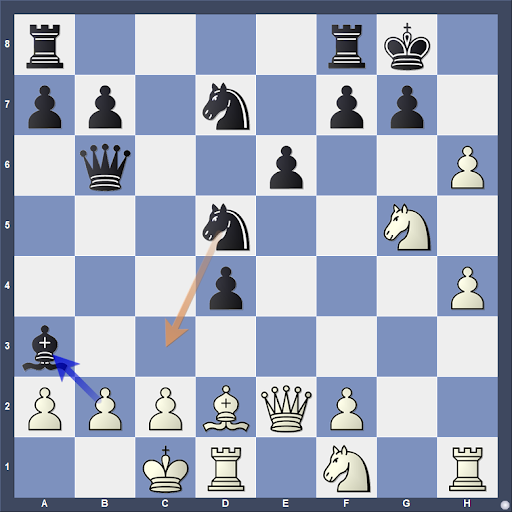
Elisabeth capitulated since 18.bxa3 is met with 18…Nc3 and after 19.Bxc3 dxc3 it is game over. 0-1
This is not Munguntuul’s first rodeo at a FIDE Women’s Grand Prix, as she participated in the 2009/2010 and 2011/2012 series. She starts this leg off as the lowest seed, which she admitted makes her nervous, but after such a good second-round bounce back, she is clearly in form.
Aleksandra Goryachkina – Bibisara Assaubayeva 1/2-1/2

Similarly to her first round, Aleksandra opted for a less-played opening line, this time in the Ruy Lopez. However, Bibisara seemed to be familiar with it, blitzing all her moves accurately and keeping her time above the start hour and a half, all until the novelty on move 11: 1. e4 e5 2. Nf3 Nc6 3. Bb5 a6 4. Ba4 Nf6 5. O-O d6 6. Bxc6+ bxc6 7. Re1 Bg4 8. h3 Bxf3 9. Qxf3 Nd7 10. Na3 g6 11.b4 Whether this was preparation or merely just played over the board, it clearly stumped the Kazakhstani player, who would take almost 9 minutes to respond with 11…Bg7.
A few moves later, White attained a sizable advantage after Black played incorrectly:
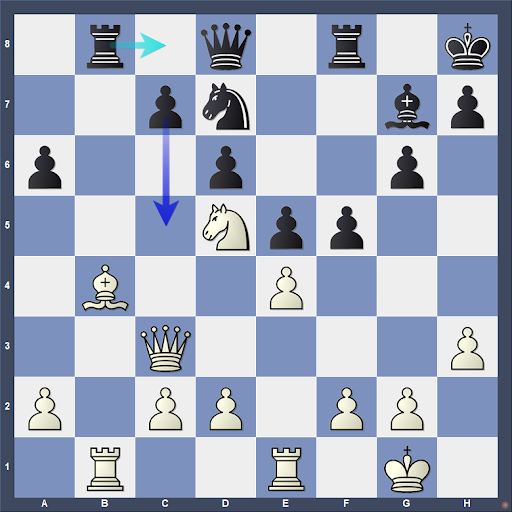
White is slightly better, with more active pieces, but all Black had to do was protect the c7-pawn with 18…Rc8. However, after 18…c5?, White gained a significant advantage, as the black pawn structure was weakened, and White’s bishop came to life via a5.
However, Aleksandra made several inaccuracies and let her advantage slip away. The position fully equalized after the erroneous 25.Qxd6?
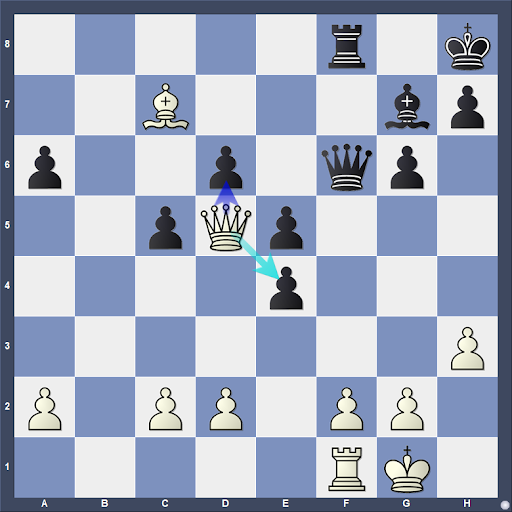
This seems like the logical capture, giving Black weak central pawns, but better was 25.Qxe4 followed by Qc6, keeping the queens on the board, maintaining pressure, and not allowing Black’s Rook any activity. The latter is exactly what happened after 25…Qxd6 26.Bxd6 Rd8 27.Bxc5 Rc8 28.Be3 Rxc2. Suddenly, Black’s pieces were in the game, and a three-fold repetition occurred a few moves later.
Tsolakidou, Stavroula – Salimova, Nurgyul 1/2-1/2
Two of the younger participants reached an interesting position in the Italian, where Nurgyul had an opportunity to shake things up tactically with a bishop sacrifice:
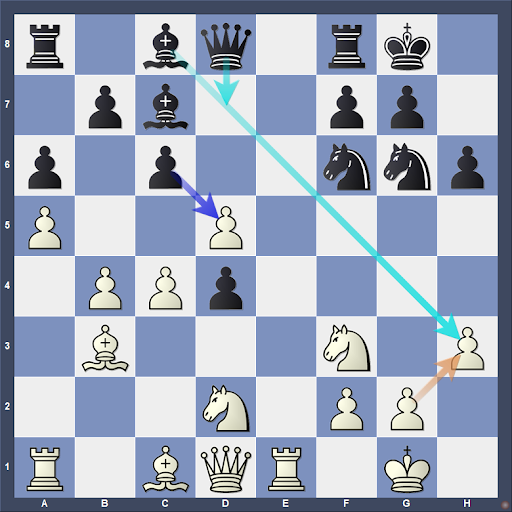
Here 16…Bxh3! is Black’s top move, starting fireworks on the kingside. White’s best response would be to decline the sacrifice with a move like 17.Ne4, but if instead 17.gxh3 was played, suddenly things take a dangerous turn after 17…Qd7, followed by Qxh3, and White will be under pressure to defend with precision.

However, it is easy to spot this with computer evaluation on hand, but at the board, this was perhaps not clear enough for Salimova. She instead opted for 16…cxd5, eventually gaining a slight advantage and comfortable position. Another critical moment came on move 37 where Black had an opportunity to secure a clear advantage:
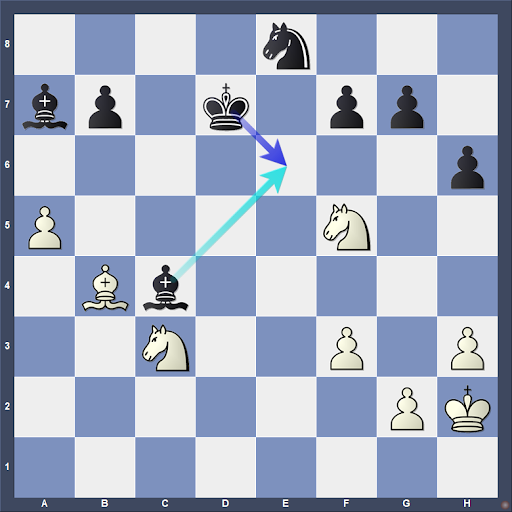
Salimova played 37…Ke6, attacking White’s good Knight, which was necessary in order to relieve the black e8-knight from its defensive duties and passivity on the back rank. However, this was the incorrect way as after 38.g4 the Knight stayed put. Salimova tried 38…g6 39.Nxh6 Be3 40.Ng8 but this was not enough as there was no way to make progress. The opponents eventually repeated moves and called it a draw.
Instead, 37…Be6 was the better way to attack the Knight. 38.g4 is no longer as attractive, making the 38.Ng3 retreat White’s only option.
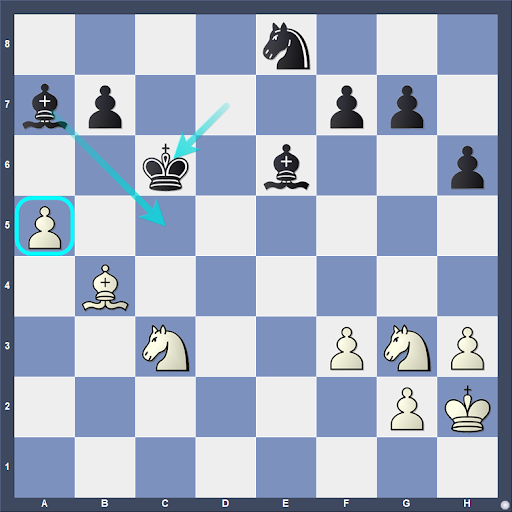
Now, importantly, the black King heads to the queenside via c6, threatening Bc5, eventually picking up the a-pawn. This continuation looks much more promising for Black. Nurgyul missed her chance to take down one of the tournament leaders, but a draw is still a good way to recover from her first-round loss to Assaubayeva.
Koneru, Humpy – Tan, Zhongyi
Tan Zhongyi was once again one of the last players to leave the tournament hall in what was another long game. Humpy snatched a pawn relatively early, but Tan played actively and White never had any major advantage for the most part.
But the tides changed on move 27, and in a rare occurrence, as Tan blundered!
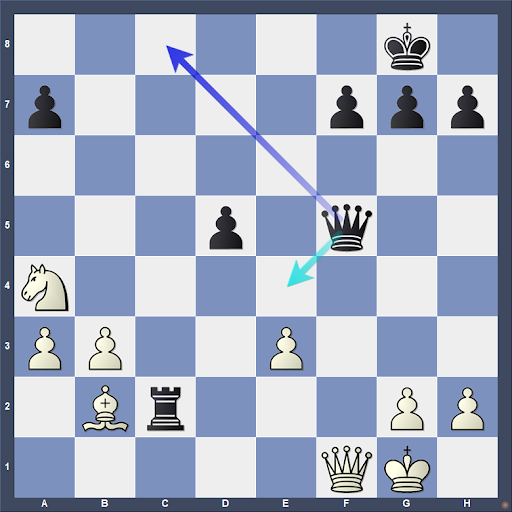
Here 27…Qe4 was Black’s only way to maintain equality, keeping the Queen active and creating threats on both e3 and g2. After a move like 28.Bd4 defending e3, suddenly 28…Rxg2 is possible and after 29.Qxg2 Qb1+ it becomes check galore, and a draw is inevitable.
Tan, however, played 27…Qc8?? Allowing White to activate the Queen with 28.Qd3, and suddenly, things become very dangerous for Black. 28…Qc6 was played, and here 29.e4! was crushing as a back-rank checkmate was looming, and Black would have to, therefore, lose the pawn. After spending almost five minutes thinking here, Humpy played 29.Bc3? The engine would continue to see-saw up and down between equality and an advantage for White, eventually reaching this final critical position on move 39, one move away from the added 30 minutes, and the game was in Humpy’s hands.
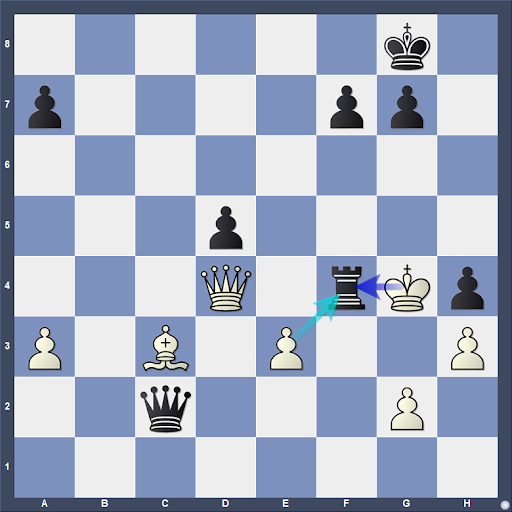
The correct capture was 40.exf4 as after 40…Qxg2, White has 41.Kxh4 and the King is shielded from checks. Instead, Humpy captured with 40.Kxf4 allowing 40…Qxg2. With an exposed King, and hanging h3-pawn, White’s best solution was 41.Qxg7 trading off Queens, and equalizing the position. After move 70, they eventually drew in a pawn endgame.

Lagno, Kateryna – Divya, Deshmukh
The game between Kateryna Lagno and Divya Deshmukh was a relatively calm affair. Kateryna, possibly still recovering from her round 1 game where she did not convert a completely winning position against Goryachkina, played quite passively with the white pieces. However, Black was never able to attain any significant advantage, and after 40 moves, the game was drawn.

With all three first-round victors drawing today, the top standings remain unchanged. Tomorrow, two of the leaders, Assaubayeva and Tsolakidou, will clash, which could prove pivotal in shaping the leaderboard.
Round three pairings and dates
The third round of the second leg in the 2024/25 Women’s Grand Prix series starts on Friday, November 1st, 15:00 local time in Shymkent, Kazakhstan.
Standings after Round 2
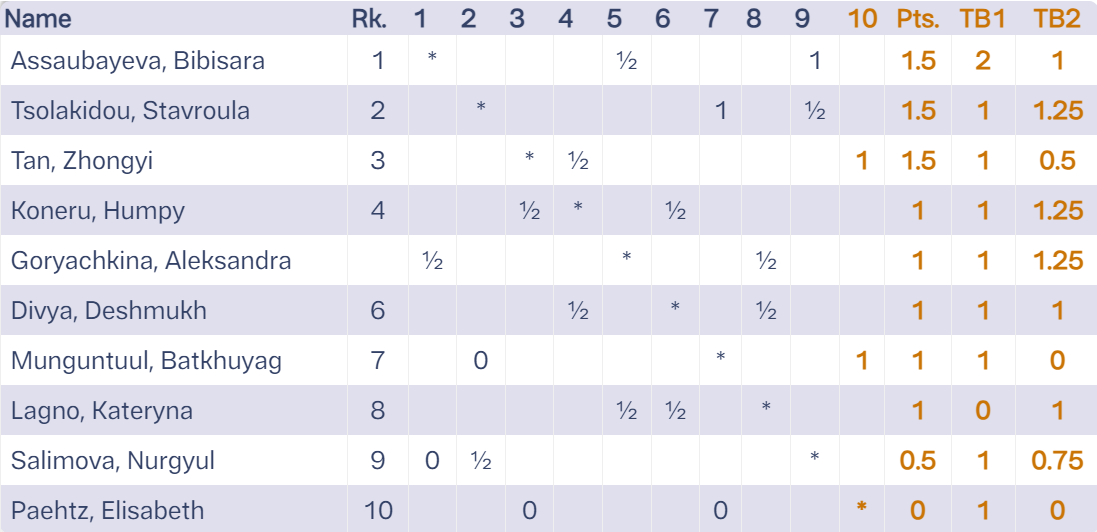
Round 3 pairings:
Divya, Deshmukh – Goryachkina, Aleksandra
Tan, Zhongyi – Lagno, Kateryna
Munguntuul, Batkhuyag – Koneru, Humpy
Salimova, Nurgyul – Paehtz, Elisabeth
Assaubayeva, Bibisara – Tsolakidou, Stavroula
More information about the event, including the regulations and details of the pairings, as well as live games can be found on the official website: womengrandprix.fide.com.
Written by Charlize van Zyl
Photos: Konstantin Chalabov and Anastasia Abramova






More Stories
Chess in New York: A walk through parks, clubs and history
FIDE World Rapid and Blitz in New York preview: An epic ending to 2024
„Schach als Brücke für Frieden und Hoffnung“
Season’s greetings from FIDE President
Full list of participants for 2024 WRB announced
Gukesh D crowned 18th FIDE World Champion